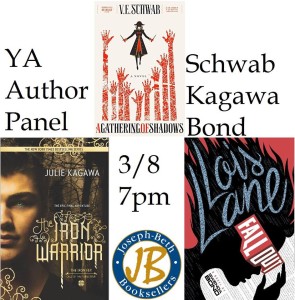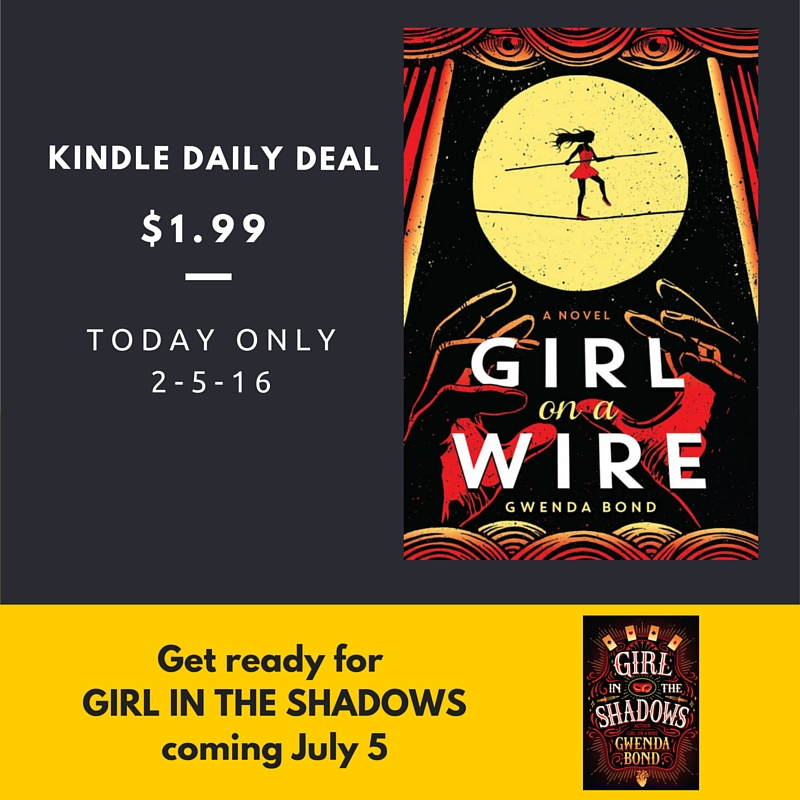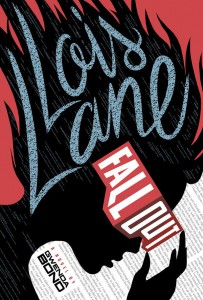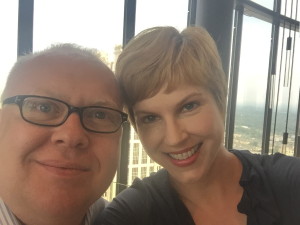I taught this week’s session of the Young Women Writers Project, a tremendous program the Carnegie Center here in town runs for teen writers with the support of the Kentucky Commission on Women and Toyota. It’s always a gift to work with such a talented bunch of girls, and I watch out for their world-conquering feats forever after. This year was no exception.
I asked on Twitter and Facebook for things that women wished they had heard or been taught as young writers or what they’d say to teen girl writers, and the results were so good I collected them into a handout that we went through during our professional development/business time. No reason to be stingy, here are the results — which are valuable for all of us. Thanks everyone for chiming in (and feel free to add new thoughts in the comments; I have a feeling I’ll be updating this to use again).
Your voice matters. – Cate Tiernan (and me, and everyone you should listen to)
I wish someone’d told me that the rules every one of my profs harped on didn’t actually matter. Things are changing. Change faster. Danika Stone
Your words and thoughts matter. Don’t be afraid to own your ideas. Elizabeth DiEmanuele
That not all stories are meant for everyone. It’s more important to write what makes you and your audience happy. Kate Focke Pearson
It’s okay if your subject matter/genre is different from what’s trendy with your peers. Kate Linnea
In my Creative Writing B.A, I wish they would’ve stressed the importance of networking in addition to quality. It is one thing to write well and deliver on time. People, however, are crucial to building a career as a writer. Readers and fellow pros. Monica Valentinelli
I wish someone had taught me then how to revise my own work — know what worked, what didn’t, and how to fix. Courtney Stevens
How to assess feedback: what hones the story you’re trying to write and what merely takes it in a different direction. Carrie Patel
I feel like past me needed to be constantly reminded that there was no “trick” to being published, just good writing. Beth Revis
You don’t have to Iove books billed as “classics.” You’re not less of a writer if Huck Finn isn’t your cup of tea. Nivea Serrao
That feeling like you’re starting from scratch with every book doesn’t mean you’ve forgotten how to write one. Emma Trevayne
Your instructor’s tastes and priorities may not apply to the work you want to do. I am quietly sure that the instructor who told me my work was “too sentimental” set me back ten years, easy. Andrea Phillips
Characters should only speak when they have something to say. You don’t have to force it. Katherine Chappell
Write every single day. One sentence. A page. A paragraph. One sentence. Even on days when you don’t feel like it. Erika Rose
Give your work to friends you trust to be both honest AND encouraging in giving their opinions about it! Then revise again and again. Stephanie Burgis
SILENCE THE CRITIC. Write. Experiment. Start stories and stop them, start another one. Don’t worry about how “good” it is. Practice. Terra Elan McVoy
Success as a writer (or musician, or artist) is 95% perseverance. As long as you don’t quit, you’re still on track. James Sutter
Be bold. Write about the familiar as well as the unknown. Renee Carter
Thinking about writing doesn’t replace actual-fax writing. (Though thinking time is important.) Victoria Janssen
Here’s one I got from my mother “don’t overthink, just write.” Book Girl
Stealing from Kate Wilhelm, but I wish I’d been told: Never take your husband’s name, at least not professionally. Colleen Cooper
Don’t let it diminish your light when your (male) profs tell you that the feminism in your writing is ‘cute.’ Lisa Mantchev
When you’re a tween/teen, it’s hard for mean words to not get to you. However, there’s still amazing people in the world. Find your own voice. Write about the things you love not because someone else is doing it. Let your passion flag fly high! Nerd and Lace
Your voice matters. And you’re responsible for what you put out into the world. What message are you sending? What communication are you trying to make? Cate Tiernan/Gabrielle Charbonnet
Genre writing is just as important as “literary” fiction. You can’t edit a blank page and really, it’s okay for your first draft to be not great. Imposter syndrome will never go away, so get used to pushing through it now! Laura Lam
Women have societal expectations to be Pinterest-queens, inspiring spouses and Attached Parents. Treat writing like becoming a doctor or lawyer – study, craft, and think of your characters like clients or patients. M L Konett
You don’t need anyone’s permission. Laurie Thompson
It’s not conceit to acknowledge your strength, particularly when you balance it with with gratitude (to those who may have taught or helped you, to God or the universe, or good genes). Or just: It’s not conceit to acknowledge your strengths. Heidi Shulz
“No” is a complete sentence. Tracy Winfield Holczer
Your time has value. Remember that when you feel the urge to fret or slack or waste precious moments doubting yourself…and remember it when people ask you to write or present for free. Your time has value. Nikki Loftin
If you don’t learn to value yourself, no one else will value you. Sarah Darer
1. It’s OK to “not know,” to revisit, rethink…revise along the way—that’s why many of us write, to do just that. 2. Being supportive doesn’t mean that you should do someone else’s research or work for them. Olugbemisola Amusashonubi-Perkovich
Your voice is equal to anyone else’s in the room. (Well, maybe not if you’re with President Obama but you get my drift.) Cheryl Blackford
Ignore the haters. Find the people who enable you to do your work. Support your peers and cheer for their successes. Read everything. Don’t double-space after periods. Gwenda Bond
Also:
Your voice matters.
(This wisdom collected from Twitter and Facebook in Feb. 2016 especially for you.)












 Are you coming to Charleston this weekend? I hope so!
Are you coming to Charleston this weekend? I hope so!